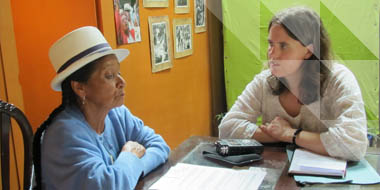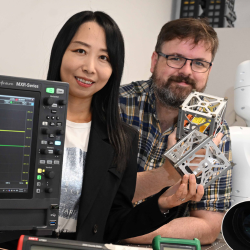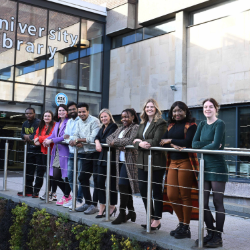-
Study
-
Undergraduate
- Search for a Course
- Undergraduate Open Day & Events
- Application Guides
- Northumbria University UCAS Exhibitions
- Foundation Years
- Undergraduate Fees & Funding
- School & College Outreach
- Continuing Professional Development
-
Postgraduate
- Postgraduate Study Degree
- Postgraduate Research Degrees
- Postgraduate Open Days and Events
- Postgraduate Fees & Funding
- Flexible Learning
- Thinking about a Masters?
- Continuing Professional Development
- Change Direction
-
Student Life
- The Hub - Student Blog
- Accommodation
- Life in Newcastle
- Support for Students
- Careers
- Information for Parents
- Students' Union
- Northumbria Sport
- Be Part of It
-
-
International
International
Northumbria’s global footprint touches every continent across the world, through our global partnerships across 17 institutions in 10 countries, to our 277,000 strong alumni community and 150 recruitment partners – we prepare our students for the challenges of tomorrow. Discover more about how to join Northumbria’s global family or our partnerships.
View our Global Footprint-
Applying to Northumbria
- European Union
- Our London Campus
- Northumbria Pathway
- International Events
- Entry Requirements and Country Representatives
- Regional Offices
-
Northumbria Language Centre
- Faculty Requirements
- Acceptable English Requirements
- Pre-sessional English Language and Study Skills
- Academic Language Skills Programmes (ALS)
-
International Fees, Funding & Scholarships
- International Undergraduate Fees
- International Undergraduate Funding
- International Masters Fees
- International Masters Funding
- International Postgraduate Research Fees
- International Postgraduate Research Funding
- International Money Matters
-
Life at Northumbria
- International student support
- Careers
-
International Mobility
- Current Northumbria Students
- Incoming Exchange Students
-
-
Business
Business
The world is changing faster than ever before. The future is there to be won by organisations who find ways to turn today's possibilities into tomorrows competitive edge. In a connected world, collaboration can be the key to success.
More on our Business Services -
Research
Research
Northumbria is a research-rich, business-focused, professional university with a global reputation for academic quality. We conduct ground-breaking research that is responsive to the science & technology, health & well being, economic and social and arts & cultural needs for the communities
Discover more about our Research -
About Us
-
About Northumbria
- Our Strategy
- Our Staff
- Place and Partnerships
- Student Profiles
- Alumni Profiles
- Leadership & Governance
- Academic Departments
- University Services
- History of Northumbria
- Contact us
- Online Shop
-
-
Alumni
Alumni
Northumbria University is renowned for the calibre of its business-ready graduates. Our alumni network has over 244,000 graduates based in 178 countries worldwide in a range of sectors, our alumni are making a real impact on the world.
Our Alumni - Work For Us
What will I learn on this module?
You will learn approaches to physical, psychological, social, political, economic, cultural and environmental aspects of health and well-being associated with immediate crises and longer-term health burdens. This lays foundations for comparing and contrasting strategic policy for preparedness and responses to emergent health hazards, complex political disasters, resilient health care and ways of looking at communities and the socio-economic, political, psychological and environmental characteristics they exhibit. This agenda is based on a demand to understand the nature and context of changes in human health and well-being in response to local and global crisis. It provides grounding in applied principles and practices of health and well-being centred disaster risk reduction and health care relative to conceptions of ‘health and well-being’ in emergency’, and transformations, bottom-up capabilities, leadership and hopes from inside and outside a community. Critical issues in both minority and majority worlds are examined either in terms of health hazards, vulnerability, resilience, coping, individual and institutional health care and societal responses and in terms of a virtual or real project in community well-being. These central themes, which are adjustable to most health and well-being phenomena, are addressed for the cases of infectious disease, nutrition, mental health and well-being, primary and emergency health care systems, the political economy of care, self-care, one health and other integrated well-being perspectives. A prime purpose of the module is that students from varied backgrounds will be equipped to contribute to policy and practice debates or health disaster avoidance, survivability and sustainable well-being.
How will I learn on this module?
You will learn through lectures, seminars, workshops, directed and independent learning. The module includes twelve three hour contact sessions over Semester Two. These comprise short lectures, open discussions, group activities and presentations. The module benefits from visiting speakers, which help link the module to the industry. The series of sub-components define the focus of scheduled sessions. Those enrolling on this module may selectively commit personal study time to the aspects of physical and mental health and community well-being they are drawn to. A core element of the subject is the improved awareness and effectiveness that emerges through integrated health and well-being centred disaster risk reduction and development. In this respect, a significant emphasis is made in driving themes, approaches, frameworks, and responses that crosscut varied health and well-being issues in disasters and development. Students are encouraged to reflect on analytical and practice orientated linkages between subtopics. Two assignments, a scenario based risk assessment written as a short essay (Assignment 1), and a formal report (Assignment 2) accompany this module. This may be focussed on a community well-being or health care resilience case study. The assignments allow for an ongoing learning process with a group discussion in a mid-module session for Assignment 1 and ongoing formative feedback and discussion on assignment two. Through content and professional skills development this module supports employability in the sector.
How will I be supported academically on this module?
Support from the module tutors is available throughout the module by way of the contact sessions, availability at office for one to one consultation and via email. The E-Learning site is stocked with materials for the module relating to each lecture, supplementary reading, assignment details and reading lists. Visiting speakers remain available after their sessions to be contacted about the contents of their sessions. Students are made aware of a number of online networks run from within this sector that can provide further consultation routes. Module Assignment One is supported by a group discussion based on students verbally sharing a summary of their work with the rest of the group during one of the sessions set aside for this purpose. The second assignment may be as a concrete example of health care or community wellbeing. Participants collaborate with peers to develop an active and participatory research culture amongst fellow students to facilitate peer learning and informal structures of support. Seminars, workshops and tutorials provide students with guidance and informal formative assessment.
Teaching staff operate an ‘open door’ policy for students meaning you can approach them anytime during normal office hours, or via email, to answer questions, receive feedback and support your learning on the module.
What will I be expected to read on this module?
All modules at Northumbria include a range of reading materials that students are expected to engage with. Online reading lists (provided after enrolment) give you access to your reading material for your modules. The Library works in partnership with your module tutors to ensure you have access to the material that you need.
What will I be expected to achieve?
Knowledge & Understanding:
• MLO 1: Appraise definitions and conceptions of health, well-being and community as used by a range of practitioners.
• MLO 2: Interpret the nature and context of health and well-being in disaster including physical and mental health risk, coping and the social, economic, cultural, political and environmental context of disadvantages and marginalisation.
Intellectual / Professional skills & abilities:
• MLO 3: Prioritise issues to be addressed for health and community well-being in disaster prevention and recovery and in everyday life including the identification of appropriate applications of the principles and practices in health and community well-being development.
• MLO 4: Evaluate institutional sustainability for health care delivery and/or community well-being in emergencies and in development including through writing of a summative report and accompanying presentation.
Personal Values Attributes (Global / Cultural awareness, Ethics, Curiosity) (PVA):
• MLO 5: Empathise with mixed definitions, interpretations, and scaling of health and community wellbeing whilst applying your analysis of its constitution, b/ordering processes of change relative to different cultural interpretations, your own positionality and in the interests of philanthropic, civic (at various scales) and ethical behaviour in contrasting sectors.
How will I be assessed?
There are two assessments for this module.
These are individual pieces of work.
MLO 1, 2, 3, 5: Health and well-being risk assessment and emergency contingency plan in the form of an individual scenario based essay. (45% Essay)
MLO 1, 3, 4, 5: Community well-being or health care resilience evaluation – individual formally written report (55%)
Formative feedback for Assignment One will be provided on the first assignment through a group discussion on verbal summaries of assignment one during one of the contact sessions a week before its submission as a written piece of work. The formative feedback will continue in the form of individually orientated written comments on assignment scripts and through feedback to the group during one of the contact sessions following submission.
Formative feedback for Assignment Two will be made through initial verbal feedback during one of the final sessions. Students are provided guidance on the expected format and conventions for their submission.
Summative assessment is by way of the 2,500 word written contingency plan in essay format and the 2,500 word report for Assignment Two.
Students may select to do Assignment Two either as group work on a community well-being case study or individually or a health care resilience evaluation.
Students receive ongoing advice about both assignments during many of the weekly sessions throughout the module. Students receive written feedback on their final submissions via the module tutor.
Pre-requisite(s)
None
Co-requisite(s)
None
Module abstract
You will encounter the grand challenges of our times regards human survivability, health and well-being at the core of effective disaster management and sustainable development theory, policy and practice. The module addresses approaches to physical, psychological, social, political, economic, cultural and environmental and spatial aspects of health associated with immediate crises and longer-term health burdens. The module explores the contested notions and approaches to both community and well-being in disaster and development. This lays foundations for comparing and contrasting strategic policy for preparedness and responses to emergent health hazards, complex political health disasters, resilient health care and community well-being. Key approaches of the Northumbria Programme have been frequently recognised by the United Nations (WHO, UNHCR and UNISDR). Critical health and well-being opportunities in both of majority and minority worlds are examined through this module. You will work on real issues and cases using a group-based and reflective approach.
Course info
Credits 20
Level of Study Postgraduate
Mode of Study 2 years Part Time
3 other options available
Department Geography and Environmental Sciences
Location City Campus, Northumbria University
City Newcastle
Start September 2025
All information is accurate at the time of sharing.
Full time Courses are primarily delivered via on-campus face to face learning but could include elements of online learning. Most courses run as planned and as promoted on our website and via our marketing materials, but if there are any substantial changes (as determined by the Competition and Markets Authority) to a course or there is the potential that course may be withdrawn, we will notify all affected applicants as soon as possible with advice and guidance regarding their options. It is also important to be aware that optional modules listed on course pages may be subject to change depending on uptake numbers each year.
Contact time is subject to increase or decrease in line with possible restrictions imposed by the government or the University in the interest of maintaining the health and safety and wellbeing of students, staff, and visitors if this is deemed necessary in future.
Useful Links
Find out about our distinctive approach at
www.northumbria.ac.uk/exp
Admissions Terms and Conditions
northumbria.ac.uk/terms
Fees and Funding
northumbria.ac.uk/fees
Admissions Policy
northumbria.ac.uk/adpolicy
Admissions Complaints Policy
northumbria.ac.uk/complaints














